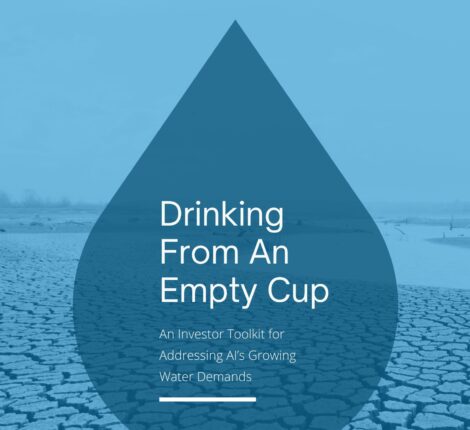Our CEO’s 2Q 2020 Letter to Clients
June 30, 2020
I am afraid. I am not afraid of stock market volatility; I am afraid that we are leaving Democracy behind and sinking into Trumpian Fascism. I am afraid that those of us who identify as progressive will so mourn the loss of Elizabeth and Bernie that we will stoke division among moderate democrats and even moderate republicans. I worry that we will lose track of big picture Democracy, settle into our financial wellbeing, and neglect to support the democratic nominee and whoever he picks as his running mate because that person won’t be progressive enough, left-leaning enough, or Black enough.
We all need to work to get Trump out of office with every cell in our beings and money in our pockets. This is not about the stock market. This fight is about recreating a middle class with decent wages and health care and making sure those who never had them get them. This is about the reallocation of wealth through tax law changes that may not be great for your portfolios or for your estate. This is about more than increasing your charitable giving to save under resourced groups. Supporting a candidate that is “meh” is not as fun or exciting as supporting someone who really represents your vision of the world, but we all need to put our energy and eagerness towards ensuring that Trump does not have another four years in office. I have been asked what will happen to “the market” if Biden is elected. My question is: what will happen to the United States of America if he is not? What will happen to our rights, our freedom, our laws, and our participation in the global economy if he is not elected?
Remember, after we learned that Trump was elected in November 2016, stocks in the financial and energy sectors surged upward. Mainstream investors assumed that Trump’s leadership would bode well for these sectors. That has not been the case, and yet this type of speculation is commonplace. According to a recent Bank of America Global Research report recently referenced in the New York Times, “[t]he knee-jerk reactions of the market are likely to be based on perceptions of a Republican regime as more business friendly and a Democratic regime as more negative for risk assets, but medium-to long-term ramifications of either scenario are less clear cut.”[1] In fact, the financial and energy sectors have underperformed during the Trump administration even though as the article points out, “[d]uring Mr. Trump’s presidency, taxes dropped sharply, including those on corporate profits, capital gains and the income of wealthy people…. In moves bolstering fossil-fuel energy companies, for example, Mr. Trump… rolled back nearly 70 environmental regulations and is in the process of eliminating about 30 more, a tally by The New York Times shows.” From January 1, 2017 through June 30, 2020, the S&P 500 has increased by 39%. Over the same time period, the financial sector of the S&P 500 is up a mere 7%, while the energy sector is down 41%. So much for mainstream projections.
We did not respond to Trump’s election by changing our belief in what type of company is a good investment. We continue to execute our strategy, looking for companies we believe will provide positive earnings growth and that have a unique approach in their industry to addressing the challenges that we at NorthStar believe to be the most pervasive moving forward. Remember that NO company meets all of our criteria; however, our shareholder activism allows us to confront companies when they lag in addressing race and gender, income and wealth inequality, environmental justice, human rights, and corporate governance.
We continue to approach client portfolios both individually and holistically. Which bond will work best in your account? Can we purchase “outside investments” for you? What cash do you need available to meet your spending needs during this pandemic? How can we adjust all NorthStar portfolios to mitigate risk? Occasionally we will get rid of a position because we can no longer see it as adding value financially or socially, and our activism is just not working, but we prefer to continue to engage, to persist, to create positive change when we can.
This election is about getting rid of a position that we no longer can support (to put it mildly). It is also about mitigating risk (to our democracy and to our economy) and engaging in the democratic process in a very boring way so that we can get politicians back in office who will respond to our desire to create positive change.
In all likelihood, there will be a stock market response. The economy is a mess after all. Will you suffer irreparable loss and damage to your account while the new administration gets to work? It depends on your timeline, but likely you will be just fine, especially if we stay in good contact. Honestly, the irreparable harm to your freedom, the environment, the world economy, and your portfolio will be significantly worse if we reelect the current administration.
The Matter of Black Lives
Immediately after the murder of George Floyd, many companies and institutions put out statements on their “support for Black Lives.” We did not. Instead, we had meetings where staff (many of whom were sleepless and anxious) sat in silence at first and then shared what this moment has meant to them. This was not the first time, nor will it be the last, that our staff has reflected on race and racial injustice, sharing personal experiences of discrimination and pain. But the confluence of our COVID-19 isolation and our reflections on the history of African Americans in this United States, specifically the role of slavery in the birth of capitalism, touched a deep sadness in each one of us and a monumental sadness and anger in the Black women of NorthStar. We remain sad, mad, thoughtful, and resolute.
Since founding NorthStar in 1990, I have learned so much about leadership and impact. What I have embraced over the last 30 years, through my own sadness and anger, is that our sense of justice as a people is an evolving one. When we only look at the world through our own lens, our own ethical construct, our own bubble of privilege and even pain, we have a choice: we can use this lens as a protective shield or as a bridge to a new understanding of ourselves and one another. Being humble in the face of one’s own inadequacies and open to examining one’s own privilege, in all its forms, is essential to being a leader. Amid our country’s racial reckoning and as a white CEO, I’ve questioned my own sensibilities about what it means to lead a racially diverse company: when to raise my voice to speak versus when to use my ears to listen. Defensiveness in the face of new challenges is, in my opinion, the road to failure. And so, it is with an open heart and mind that our work on “impact,” our work on race and gender, income and wealth inequality, environmental justice, human rights, and corporate governance, at NorthStar, is accomplished by a group that includes an incredible diversity of experience, race, perspective, and talent. The depth of our analysis of the investments we make, the multifaceted discussions we have, and our approach to the economic and social reality of 2020 are embedded in every aspect of our work.
- – Excerpted from NorthStar’s second quarter 2020 letter to clients
The forecasts, opinions, and estimates expressed in this report constitute our judgment as of the date of this letter and are subject to change without notice based on market, economic, and other conditions. The assumptions underlying these forecasts concern future events over which we have no control, and may turn out to be materially different from actual experience. All data contained in this letter is from sources deemed to be reliable, but cannot be guaranteed as to accuracy or completeness. All investments are subject to risk, including loss of principal. Past performance is no guarantee of future results. It is not possible to invest directly in an index.
FOR INFORMATION PURPOSES ONLY
This information includes a discussion of a number of companies and other financial market and social events. These opinions are current as of the date of this publication but are subject to change. The information provided herein does not provide information reasonably sufficient upon which to base an investment decision and should not be considered a recommendation to purchase or sell any particular security.
Footnote:
[1] Jeff Sommer. New York Times. “Why a Biden Presidency Could Be Bullish for Stocks” July 24, 2020.




